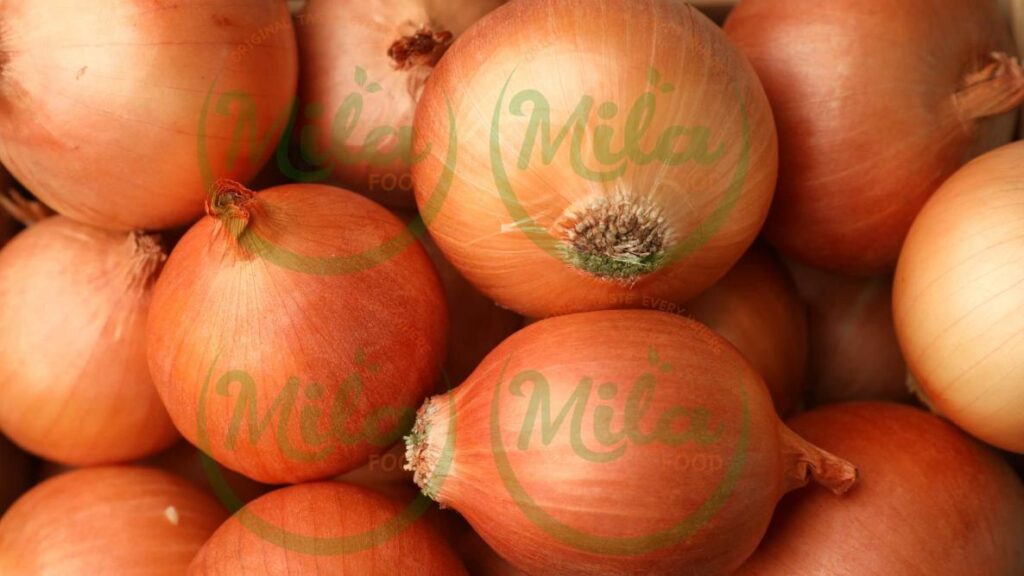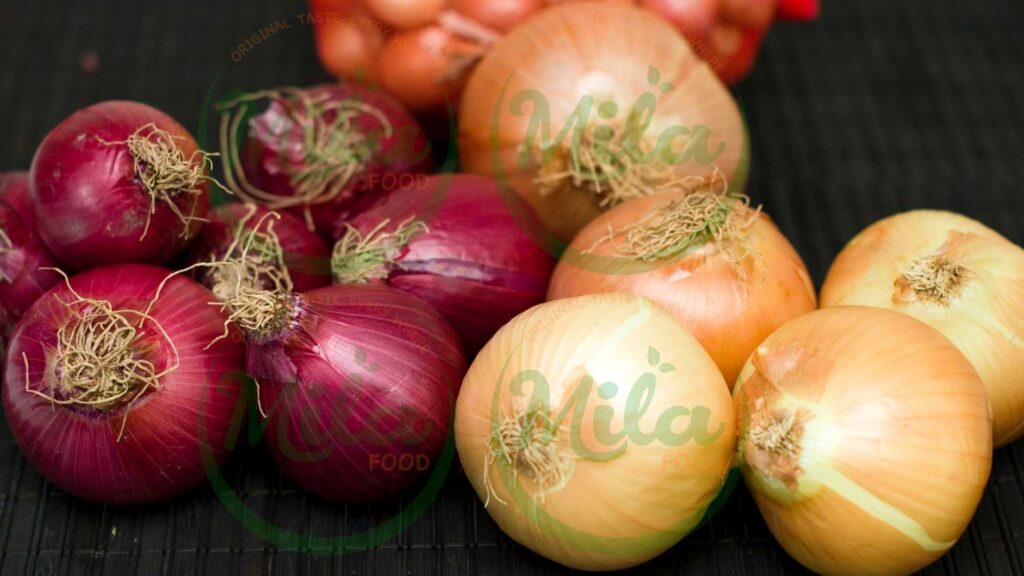


Egyptian onions, where pungency and culinary versatility reign supreme. With their rich history and indispensable role in Egyptian cuisine, onions have been a cornerstone ingredient for centuries, lending depth and aroma to a multitude of dishes. Join us as we uncover the captivating story, culinary uses, and nutritional benefits of these humble yet essential vegetables.
History and Origins: Egyptian onions, scientifically known as Allium cepa, boast a heritage steeped in ancient traditions and cultural significance. Believed to have originated in Asia, onions have been cultivated and enjoyed in Egypt since antiquity, featuring prominently in Egyptian culinary practices and rituals. References to onion cultivation and consumption can be found in ancient Egyptian hieroglyphics and archaeological findings, underscoring their enduring importance in Egyptian culture. Today, Egyptian onions continue to thrive in the fertile soils of the Nile Delta, embodying a legacy of culinary excellence and cultural heritage.
Appearance and Flavor Profile: Characterized by their distinctive layered structure and pungent aroma, Egyptian onions exude a robust flavor and aromatic charm. Available in a variety of colors, including white, yellow, and red, onions offer a spectrum of flavors ranging from mild and sweet to sharp and tangy. Whether diced, sliced, or caramelized, onions add depth and complexity to dishes, enhancing their overall flavor profile with their unmistakable presence.
Culinary Uses and Applications: Egyptian onions are prized for their culinary versatility, lending themselves to a multitude of dishes and cooking techniques. They can be sautéed to release their aromatic oils and used as a flavor base for soups, stews, and sauces. Onions can also be caramelized to develop a rich, sweet flavor, perfect for adding depth to savory dishes such as French onion soup or onion jam. Additionally, onions are a staple ingredient in salads, stir-fries, curries, and casseroles, providing both flavor and texture to the recipe. With their ability to enhance the taste of any dish, Egyptian onions are an indispensable component of Egyptian cuisine and beyond.
Nutritional Benefits: Beyond their culinary appeal, Egyptian onions offer a wealth of nutritional benefits. They are low in calories and fat, yet rich in essential vitamins, minerals, and antioxidants. Onions are a good source of vitamin C, vitamin B6, and dietary fiber, which support immune function, brain health, and digestive health. Additionally, onions contain phytonutrients such as quercetin and sulfur compounds, which have been associated with numerous health benefits, including reduced risk of chronic diseases and improved heart health. Incorporating Egyptian onions into your diet can help promote overall health and well-being, while adding depth and flavor to your culinary creations.
Cultivation and Sustainability: Egyptian onions are cultivated in the fertile soils of the Nile Delta using sustainable agricultural practices. Traditional farming methods, including crop rotation and natural pest control, help maintain soil health and biodiversity while minimizing environmental impact. Whether grown on small family farms or larger agricultural estates, Egyptian onions reflect a commitment to sustainability and responsible stewardship of the land.

